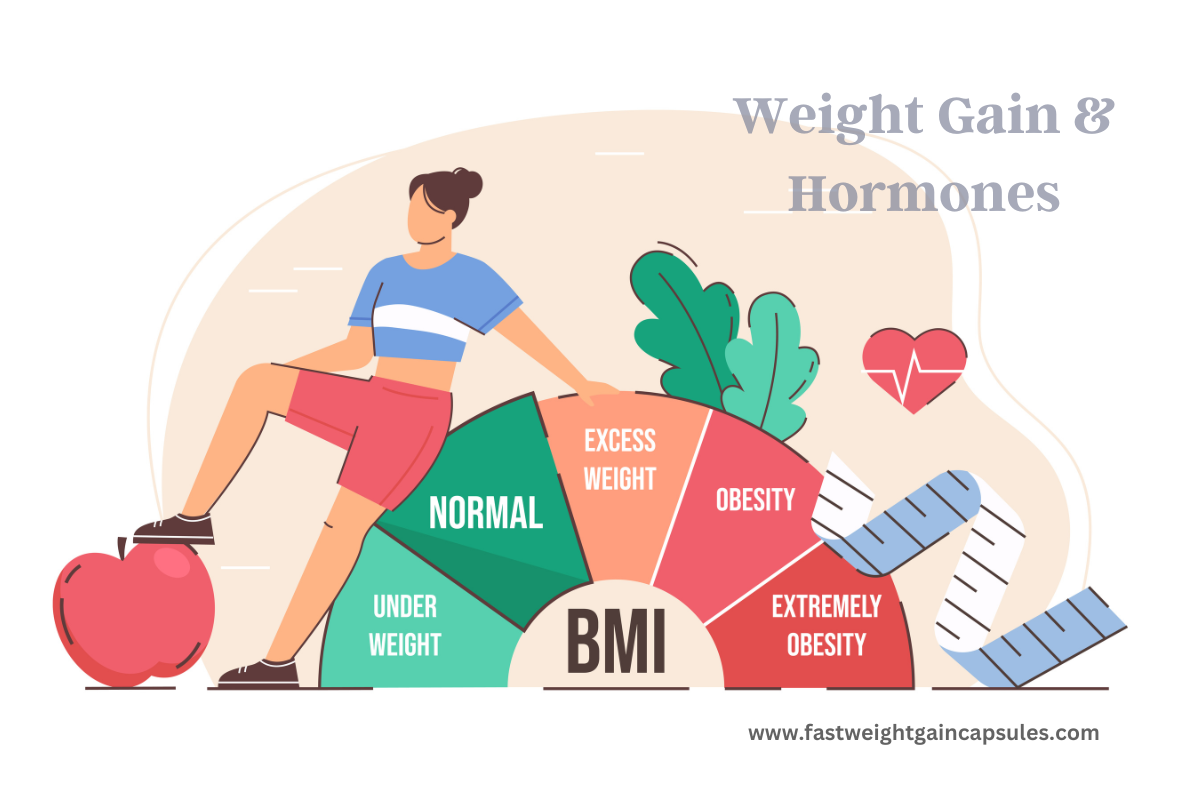The Science Behind Weight Gain and Hormones

14 Mar, 2023
The Science Behind Weight Gain and Hormones
Hormones play a significant role in regulating our body weight and can affect our ability to gain or lose weight. In this blog post, we'll take a closer look at some of the hormones that are involved in weight gain and the science behind how they work.
Insulin
Insulin is a hormone that is produced by the pancreas and is responsible for regulating our blood sugar levels. When we eat carbohydrates, our body breaks them down into glucose, which triggers the release of insulin. Insulin helps move glucose from the bloodstream into our cells, where it can be used for energy or stored as glycogen in our muscles and liver. However, when we consume too many carbohydrates or sugary foods, our body can become resistant to insulin, which can lead to weight gain and other health issues.
Leptin
Leptin is a hormone that is produced by our fat cells and plays a role in regulating our appetite and metabolism. When we have enough fat stores, leptin signals to our brain that we are full and should stop eating. However, when we become overweight or obese, our body can become resistant to leptin, which can lead to overeating and weight gain.
Ghrelin
Ghrelin is a hormone that is produced by the stomach and stimulates appetite. It is often referred to as the "hunger hormone" because it signals to our brain that we need to eat. Ghrelin levels increase before meals and decrease after meals, helping to regulate our food intake. However, when we don't get enough sleep or are under stress, our ghrelin levels can increase, which can lead to overeating and weight gain.
Cortisol
Cortisol is a hormone that is produced by the adrenal glands and plays a role in our body's stress response. When we are under stress, cortisol levels increase, which can lead to an increase in appetite and cravings for high-fat, high-sugar foods. Chronic stress and elevated cortisol levels can also lead to insulin resistance and weight gain.
Estrogen
Estrogen is a female sex hormone that plays a role in regulating our body weight. It is produced by the ovaries and helps to maintain bone density, regulate the menstrual cycle, and protect against heart disease. However, when estrogen levels are imbalanced, such as during menopause or with certain medical conditions, it can lead to weight gain and an increase in abdominal fat.
In conclusion, hormones play a significant role in regulating our body weight and can affect our ability to gain or lose weight. Understanding the science behind how these hormones work can help us make informed decisions about our diet and lifestyle choices. Eating a balanced diet, getting enough sleep, managing stress, and staying physically active can all help regulate our hormones and support healthy weight management. Consult with a healthcare professional if you have concerns about your weight or hormone levels.
